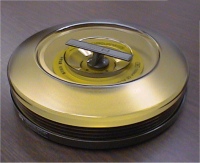- Joined
- Mar 3, 2018
- Messages
- 1,713
Think your vintage computer hardware is old? Ken Shirriff, Robert Garne, and their associates probably have you beat. The IBM 1401 was introduced in 1959, and these guys are keeping one alive in a computer museum. The system is reportedly a pain to maintain, as the volunteers have to go digging through historical archives and do some detective work to figure out solutions to pretty much anything.
The volunteers posted a video of their efforts, which you can see here.
Many things that we take for granted are done very differently in old computers. For instance, the IBM 1401 uses 6-bit characters, not bytes. It used decimal memory addressing, not binary. It’s also interesting how much people could accomplish with limited resources, running a Fortran compiler on the 1401 with just 8K of memory. Finally, working on the 1401 has given me a deeper understanding of how computers really work. It's not a black box; you can see the individual transistors that are performing operations and each ferrite core that stores a bit.
The volunteers posted a video of their efforts, which you can see here.
Many things that we take for granted are done very differently in old computers. For instance, the IBM 1401 uses 6-bit characters, not bytes. It used decimal memory addressing, not binary. It’s also interesting how much people could accomplish with limited resources, running a Fortran compiler on the 1401 with just 8K of memory. Finally, working on the 1401 has given me a deeper understanding of how computers really work. It's not a black box; you can see the individual transistors that are performing operations and each ferrite core that stores a bit.
![[H]ard|Forum](/styles/hardforum/xenforo/logo_dark.png)
